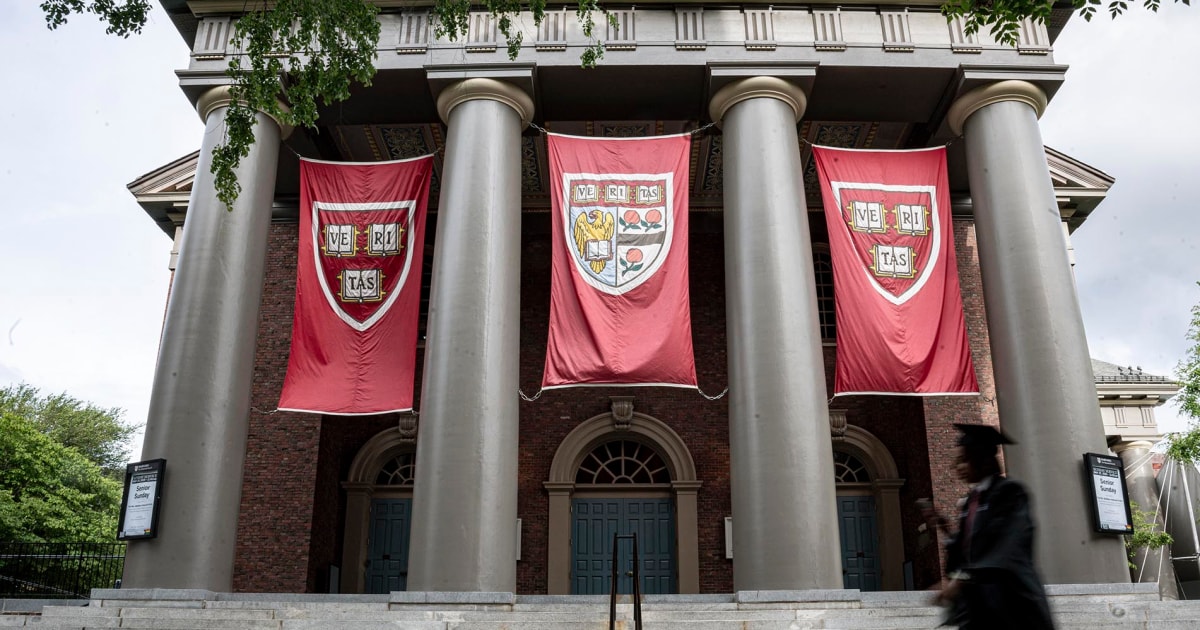
The Trump administration and Harvard University on Monday traded barbs in a critical hearing in Boston over the government’s threats to slash billions of dollars to the Ivy League school’s federal research funding.
Harvard accused the Trump administration of violating its First Amendment rights by freezing the funds to exercise authority over the school. Meanwhile, the Department of Justice argued that funding cuts are a means to protect against antisemitism, an issue that the DOJ claims Harvard had failed to appropriately address, violating the rights of its Jewish students.
Both parties had sought a summary judgement from U.S. District Judge Allison D. Burroughs, which would avoid a trial. However, there’s no indication on when she will rule.
The case could ultimately have larger implications on government oversight in schools. “This is a blatant, unrepentant violation of the First Amendment,” Steven P. Lehotsky, the attorney for Harvard, said.
Lehotsky also said that the case isn’t about a breach of contract.
“This case is about so much more for Harvard and for higher education,” he said.
Burroughs did not rule from the bench, but told the court that she would get to a decision as quickly as she could. Harvard is pushing for the ruling to come down no later than early September, the deadline to file grant paperwork for next year.
During the hearing, the parties sparred over whether antisemitism on campus justified the removal of grant funding.
Harvard did admit that there was an “antisemitism problem,” adding that the school had taken actions to combat it. But Lehotsky argued that the issue is “not germane to funding of Alzheimer’s research,” for example.
Burroughs, an Obama-appointee, pressed the DOJ, pointing out that she is Jewish, and asked how cutting off funding could help fight antisemitism.
“The choice was that the government does not want to fund research at institutions that fail to address antisemitism to its satisfaction,” said Michael Velchik, attorney for the Trump administration.
The government also argued that it has a right to cancel the terms of its grant contract if the school wasn’t meeting policy priorities. However, Burroughs said that the government did not adequately prove that Harvard wasn’t meeting those requirements.
Velchik also took issue with what he perceived as the framing of Harvard’s claims.
“Harvard claims the government is anti-Harvard. I reject that,” Velchik said. “The government is pro-Jewish students at Harvard. The government is pro-Jewish faculty at Harvard.”
For months, the Ivy League institution and the Trump administration have been locked in a tense back-and-forth. In April, Harvard refused to adhere to a set of demands issued by the administration’s Task Force to Combat Anti-Semitism. The list of 10 demands included making sweeping reforms to policies about whom the university can hire and admit, and subjecting the ideologies of faculty members to an audit approved by the government.
In response, the task force announced that it would slash more than $2 billion in grants. Harvard hit back with the lawsuit, accusing the administration of seeking “unprecedented and improper” control of the school. As tensions continued to build, the administration further ordered its federal agencies to end their contracts with the school weeks later. The contracts totaled roughly $100 million.
Most recently, Harvard drew backlash for quietly renaming the diversity, equity and inclusion offices of several of its graduate schools. The Harvard Divinity School, for example, swapped its diversity office with an Office of Community and Belonging at the beginning of July. Some critics saw the move as an effort to “cave” to the Trump administration’s demands.
